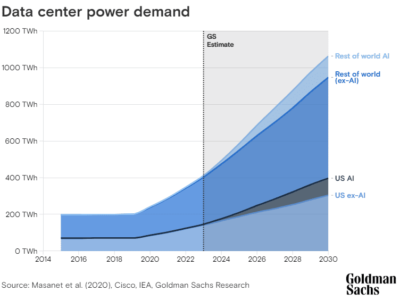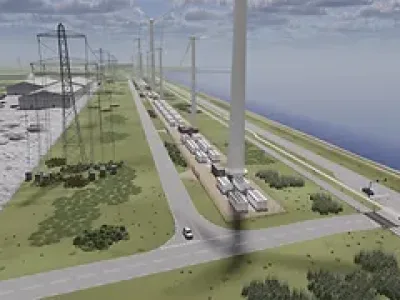
Plans and investment to boost digital connectivity and put the UK at the forefront of future telecoms technologies including the next evolution of 5G and 6G have been unveiled by Technology Secretary Michelle Donelan.
The new Wireless Infrastructure Strategy offers an investment package worth almost £150 million, with up to £100 million to put the UK at the forefront of future research, and £40 million to boost 5G tech take-up with the aim of delivering standalone 5G to all populated areas by 2030 to support the next generation of innovation. Currently, 77% of the population already has access to basic 5G from one provider.
The announcement also commits £8 million to delivering high-speed broadband for up to 35,000 of the UK’s most remote properties. Under the new scheme, homes and businesses in the most remote areas that are unable to be connected to gigabit-capable broadband will be given funding to link them up to satellites orbiting the globe, giving them a broadband connection that will be up to ten times faster than what is currently available to them.
To help the mass adoption of 5G across the country, the strategy sets out a clear pro-investment framework for mobile network operators by driving down deployment costs and improving demand. The government has also reconfirmed that there is no ‘magic number’ of mobile operators, whilst noting all decisions on consolidation are for the Competition and Markets Authority.
The UK is due to hit 75% gigabit broadband coverage this month, up from just 6% in 2019, and is on track to deliver 99% by 2030.
The government has also announced a new long-term national mission to ensure that the UK is at the forefront of both adopting and developing 6G. It has committed up to £100 million of funding initially to shape and drive early-stage research into 6G and influence global standards-setting. The UK will work closely with allies to deliver this mission.
Howard Watson, BT Group Chief Security and Networks Officer said: “Meeting this goal can only be delivered if significant new private sector investment is unlocked, which will require delivery of ambitious policy reform. We look forward to working with government to tackle the important issues set out in this strategy, in particular modernising net neutrality rules to ensure content providers are incentivised to use networks efficiently.”
Tony Eigen, VP Marketing, Baicells commented: “The UK government has recognized the importance of 5G as part of its £40m Wireless Infrastructure Strategy. 5G standalone uses an advanced 5G-based mobile core and as a result, will deliver faster connectivity speeds and lower latency performance. It will pave the way for initiatives like smart city applications, massive Internet of Things (IoT), and an enhanced consumer mobility experience.”
“The government has also identified the private sector as an area that requires investment and support. Today’s 5G technology is now more affordable and deployment-friendly than ever, and the government’s framework will begin to help businesses understand how to benefit from it. This will underpin new initiatives and stimulate growth across many industry sectors such as manufacturing, logistics, and healthcare.
“However, the level of funding is something that is likely to be questioned. £40mn is a relatively small fund to support these broad ambitions. The US government, in comparison, is investing $9 billion to deliver and improve 5G-based connectivity in suburban and rural communities. Setting positive targets for the nation is a step forward, but the government must continue to invest if it wants the UK to build a ‘prosperous’ digital future for all.”
Vish Mathur, Global Head of Engagement, Telecom Infra Project added: “TIP welcomes the immediate intervention in driving standalone 5G adoption across UK. It will create opportunities for ramping up urban densification and private networks, not only by the major telcos, but also through collaboration with infrastructure providers, tower companies and neutral host providers, looking to offer active components on network-as-a-service business terms.
“6G is expected to be built using cloud-native architecture and a new supply chain driven by IT and software companies. The telecoms industry is already moving in this direction with the advent of OpenRAN and the introduction of 5G standalone, which are making networks more software-centric, automated and vendor diverse. This will offer a natural evolution to 6G, and in many cases will see the lines between 5G and 6G blurred.
“The UK government’s investment in 6G R&D, while exploring new and exciting technologies such as quantum computing and ‘complex AI’, should focus on how networks being built today can establish the foundations for 6G leadership, and offer a platform for addressing future skills and talent gap in UK R&D and industry.”
https://na.baicells.com
https://telecominfraproject.com
 If you enjoyed this article, you will like the following ones: don't miss them by subscribing to :
eeNews on Google News
If you enjoyed this article, you will like the following ones: don't miss them by subscribing to :
eeNews on Google News




